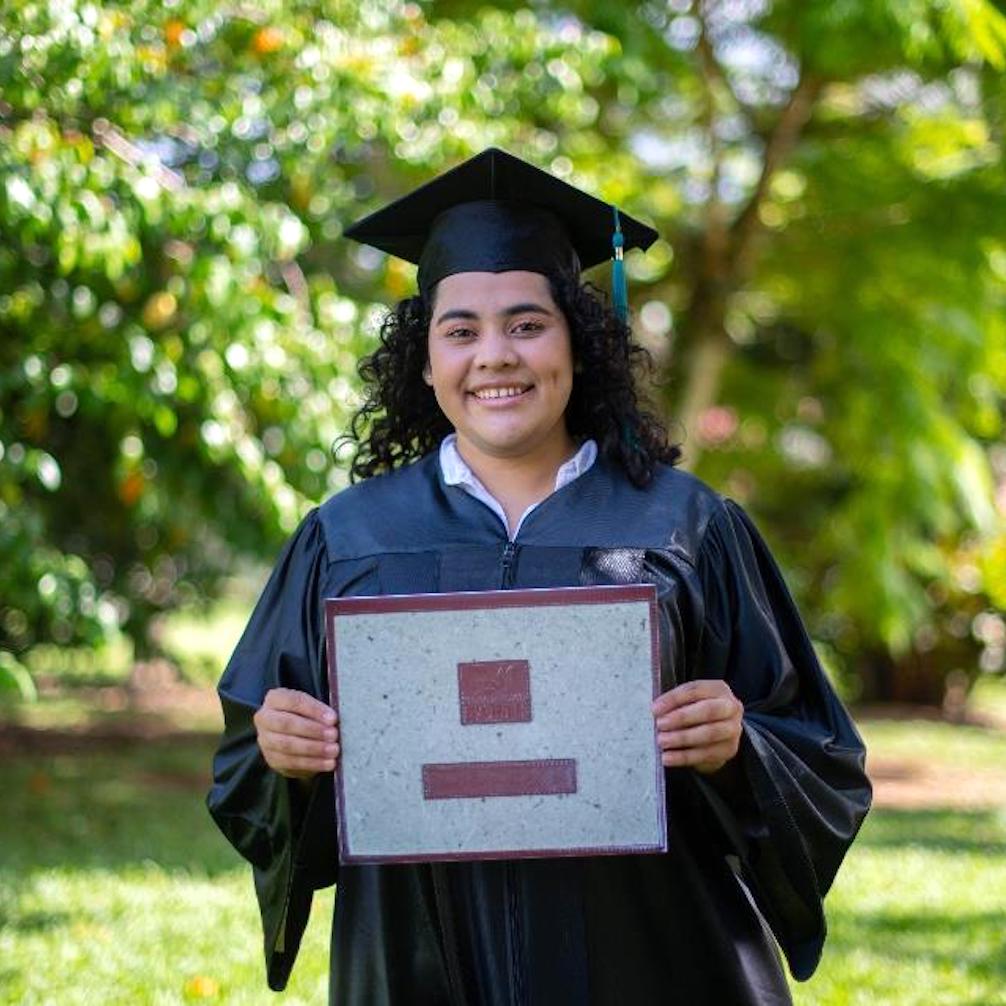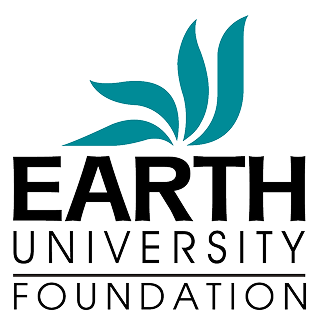
Litzy Alexandra Torres
Class of 2022, Honduras, Mastercard Foundation Scholar
Litzy Alexandra Torres
Litzy’s graduation project is called “Effects of the Application of Surfactant and Non-Catalytic Protein in Silage of Megathyrsus maximus cv. Zuri.” This project evaluates the effect of different additives, particularly sand and soy, in creating a better silage product. Silage is a kind of pasture grass that is preserved through fermentation, and Litzy’s project examines how to increase the availability of fermentable sugars during the silage process, which could improve digestibility, intake, and nutrition for animals that feed on this fodder. “Small-scale farmers can use grass that is more cost-effective while also having good-quality silage,” she says. “This is an opportunity that will also help me get a master’s degree in animal nutrition.”
Litzy completed her third-year internship at V8 Ranch, a ranch dedicated to the genetic production of Brahman cattle in Boling, Texas, United States. “The reason why I decided to do my internship here is because I didn't know what this business was like,” she says. “It sparked my interest in seeing how to achieve efficient processes, how animals are handled, and how these companies do business and differentiate themselves in the market.” Her objectives included strengthening her knowledge in cattle management, but also more broadly improving her livestock management skills. Through engaging in farm activities and consistently streamlining processes for efficiency, Litzy felt that she grew as a learner and agriculturalist. Being the only woman working in the field also allowed her to practice her interpersonal skills with her team members. In addition to honing her professional and academic skills, she also got the exciting opportunity to work with people from all across Mexico and America, and learn more about cultures other than her own.
At EARTH University, Litzy has been leading work experience for first- and second-year students at the concentrated food factory for animals, located in the Academic Farm for Animal Production. She has guided her students in developing specialized diets for cattle and pigs, which involves creating a concentrate from mixing different raw materials.
From a professional standpoint, being at EARTH has taught Litzy many practical and business skills which she plans on using to create jobs in her community back home. But more personally, the University has taught her how to be more environmentally conscious with her agronomic, sociocultural, and economic practices. “EARTH made me see the world from other perspectives,” she says. “It taught me that I could be me and that is what makes me special.” As she prepares to graduate and leave Costa Rica, she knows she will miss her professors, the beautiful sunsets on campus, and most of all, the lasting friendships she has created here.
When Litzy returns home to Honduras, she first plans on helping her family with agricultural projects. Litzy’s parents and grandparents are coffee producers, and she aims to implement knowledge she has gained at EARTH University to modernize the coffee process, improve production on all levels of the chain, and potentially help create jobs in her area. “By working with my family on this, it would allow me to set an example for other farms and also raise awareness about how important it is to take care of human resources,” she says. “The mission has always been to return and make an impact in my country through the knowledge that I was able to obtain during this great experience of studying abroad.”
These family projects, combined with an intensive English course she intends on attending, will prepare Litzy for her future plans. Litzy will be applying for a post-internship in the United States in animal production, and eventually for a master’s degree in human resource management. In addition, she also plans on impacting her community even further by helping other young people find scholarships abroad to expand their educational opportunities. In her own community, Litzy also wants to work with farm laborers and managers to educate them on labor laws, sanitation procedures, and certifications that can improve not only the efficiency of production on farms, but the quality of life of the workers themselves.
Litzy wants to express her deepest gratitude to the Mastercard Foundation for not only giving her the opportunity to pursue higher education, but for also supporting her through the years. She never could have imagined that she would have the resources for a university education, much less the rare opportunity to study abroad. “I want to thank the Mastercard Foundation for believing in young people who, like me, have all the desire to continue preparing and growing in order to make a change in our countries,” she says.
